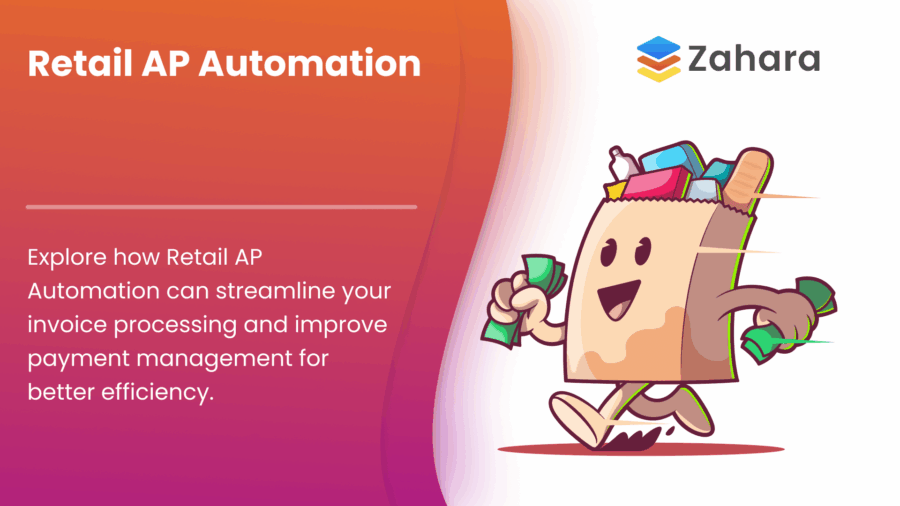Introduction to Retail AP Automation
Accounts payable (AP) automation is transforming retail finance by streamlining invoice processing, payment management, and vendor interactions. For retailers aiming to stay competitive, automating AP processes is becoming essential to improving operational efficiency.
Table of Contents
Benefits of Retail AP Automation
Retail businesses benefit significantly from automating AP processes. Key advantages include streamlined invoice processing, reduced manual errors, optimised cash flow, enhanced vendor relationships, and significant cost reduction.
Improved Efficiency and Accuracy
Manual invoice processing is prone to errors, delays, and inefficiencies. Retail AP automation eliminates manual data entry, ensuring accuracy and significantly speeding up the payment cycle.
Cost Savings and Potential ROI
Automation reduces operational expenses associated with manual tasks. Retail businesses can achieve measurable cost reductions through faster invoice processing, timely payments, and reduced late fees, enhancing overall profitability and providing a clear return on investment (ROI).
Key Features of Retail AP Automation Solutions
Retail AP automation software typically includes several critical features designed to enhance AP processes:
Invoice Capture and Processing
Automation solutions use Optical Character Recognition (OCR) and advanced data extraction to quickly and accurately capture invoice details, drastically reducing the time required for invoice entry.
Integration with Accounting Systems
Effective AP automation seamlessly integrates with existing accounting systems, ensuring smooth data transfer and real-time updates, improving accuracy and reducing duplicate data entry.
Challenges in Implementing AP Automation in Retail
Despite its benefits, retailers may encounter challenges when implementing AP automation:
Resistance to Change
Employees accustomed to manual processes may resist adopting new automated systems. Addressing this requires clear communication of benefits, effective training, and comprehensive change management strategies.
Data Security Concerns
Retail businesses handle sensitive financial information. Data security is paramount, and automation solutions must meet stringent security standards to protect financial data effectively.

Martin Peirce
Founder and CEO
Best Practices for Successful Retail AP Automation
Adopting AP automation successfully requires strategic implementation and planning:
Choosing the Right Technology
Select AP automation solutions that align closely with your retail business needs, considering factors such as scalability, ease of use, security standards, and integration capabilities.
Training Staff and Change Management
Effective training programs and robust change management are critical. Educating staff on new processes ensures smooth transitions and maximises the benefits of automation.
Future Trends in Retail AP Automation
Retail AP automation is continuously evolving, driven by technological advancements and changing business needs:
AI and Machine Learning in AP
Artificial Intelligence (AI) and machine learning are increasingly integral to AP automation. These technologies improve accuracy, predict cash flow patterns, and provide insightful analytics, further optimising accounts payable processes.
The Shift Towards Cloud-Based Solutions
Cloud-based AP automation solutions are becoming the standard due to their flexibility, scalability, ease of implementation, and robust data security. Cloud platforms support real-time collaboration and access from any location, which is essential for modern retail operations.
Conclusion of Retail AP Automation
Retail AP automation significantly enhances the efficiency and effectiveness of accounts payable processes, offering clear benefits including accuracy, cost savings, and improved vendor management. As automation technology evolves, retail businesses embracing AP automation will position themselves firmly for sustained growth and competitive advantage.

